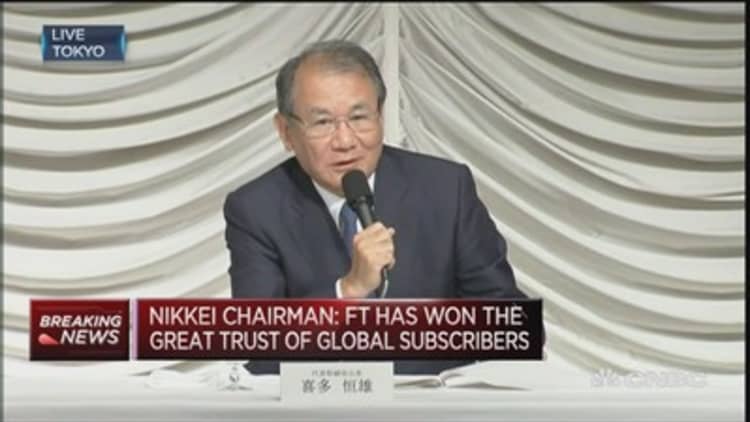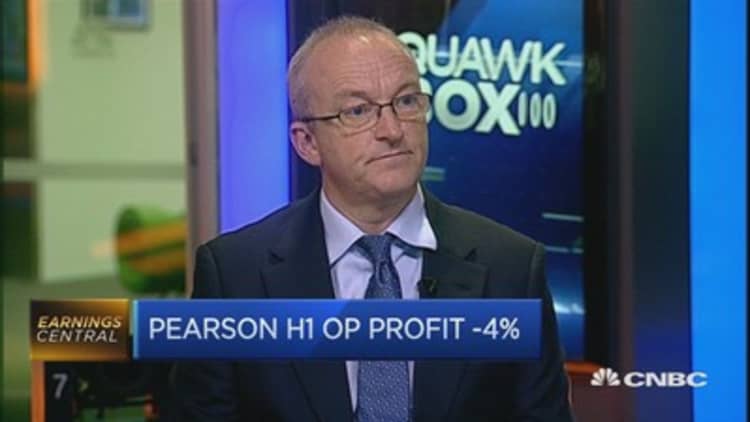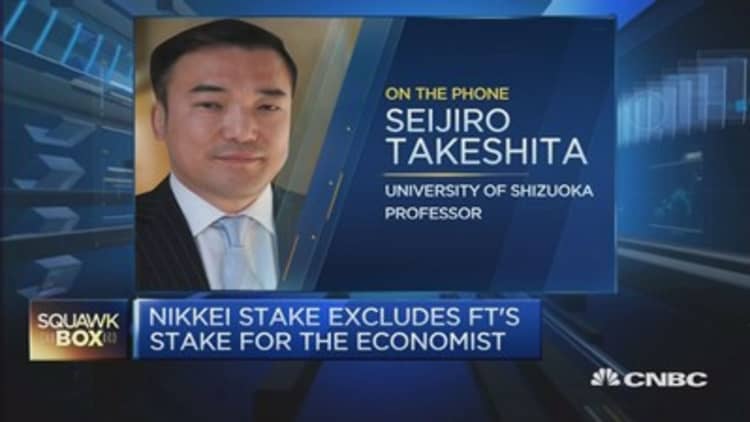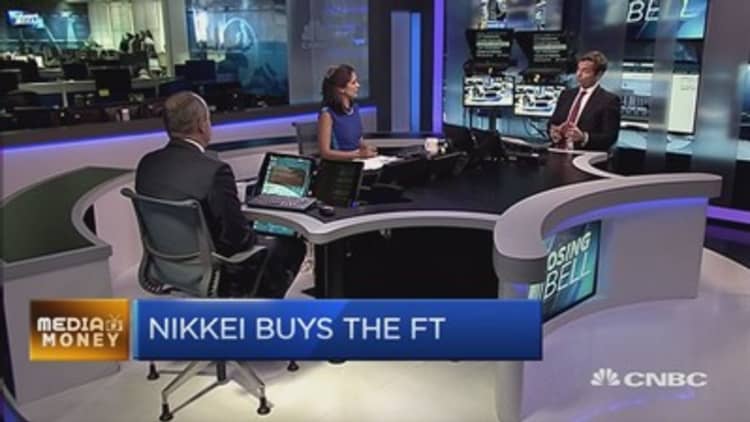



On the surface it looks like a good bit of business. A global news provider is bought by a Japanese media powerhouse, but media-watchers have mixed feelings about Nikkei's £844 million ($1.3 billion) swoop on the Financial Times.
Ian Whittaker, head of media research at Liberum Capital, told CNBC Thursday that it's "more likely than not" that the Nikkei would leave the newspaper "pretty much" to its own devices.
But others weren't so sure.
Sad day for the UK?
Michael Woodford, the former chief executive of Japanese camera and medical equipment maker Olympus, told CNBC via email that it was a "sad day not only for (the U.K.) but also globally."
"The FT is a unique institution, and its reporters have detailed technical knowledge and is rightly considered to be a bastion of knowledge and factual reporting. Its ownership is important," he said.
Woodford was fired by Olympus in October 2011 after highlighting apparent irregular payments made by the firm with the help of the Financial Times. He told CNBC that the Nikkei is not regarded as being independent of corporate Japan — the media firms owns titles like the Asian Review and the Nikkei Business Daily — and said he would "unquestionably" go to the rival publications if he found himself in the same situation again.
"I'm deeply troubled that the 'subliminal effect' of being owned by Nikkei will make it less willing to publish articles critical of corporate Japan," he said.
'Inflection point'
Pearson announced Thursday that it had agreed to the sale of the FT Group to Nikkei for £844. The company stated that "an inflection point" had been reached in the sector and the deal meant the newspaper would now get the digital strategy that it deserved.
Speaking to the BBC on Friday morning, Chief Executive John Fallon gave assurances that the Japanese firm would respect the FT's independence.
FT journalists themselves were largely positive with their views when reacting on social media, although one U.S.-based hack did question whether their "journalistic values" were aligned. Others may have raised a few eyebrows in private, as the FT has previously reported on allegations that the Nikkei - Japan's biggest business daily - has been given corporate earnings news ahead of its competition.
The Nikkei's leadership team moved to allay any concerns on Friday with a statement that said the Financial Times would continue to enjoy complete editorial independence and freedom.
A 'Japanese powerhouse'
Jonathan Helliwell, media analyst at Panmure Gordon, told CNBC Friday that there were always going to be "big cultural issues" with two global brands tying the knot, but added that "both sides start with the right perspective."
"Nikkei is a Japanese powerhouse that is very keen to go global...Nikkei has a reputation of editorial independence which is absolutely key," he said.
The agreement will be the first $1 billion-plus acquisition globally of a newspaper publisher since 2013, according to research company Dealogic. It will also be the second largest cross border merger and acquisition deal on record targeting a newspaper, it also said, behind the $1.6 billion acquisition of Newsquest by Gannett in 1999.
Again, this historical data gives a mixed picture of the potential future for the FT. Critics in the U.K. have been scathing of Gannett and how it has transformed Newsquest in the last decade. One of its regional newspapers in London has been on the receiving end of strikes this year with staff reacting to the announcement of cost cutting and job losses.
"Nikkei will need to invest in the journalism to ensure there is proper resourcing and should listen to the ideas that its greatest asset - the staff - have for taking things forward positively," Laura Davison, an organizer at the U.K.'s National Union of Journalists, told CNBC via email.
"We would not be advising the Newsquest model which has failed to invest in journalism and appears only interested in the short-term bottom line," she added.


